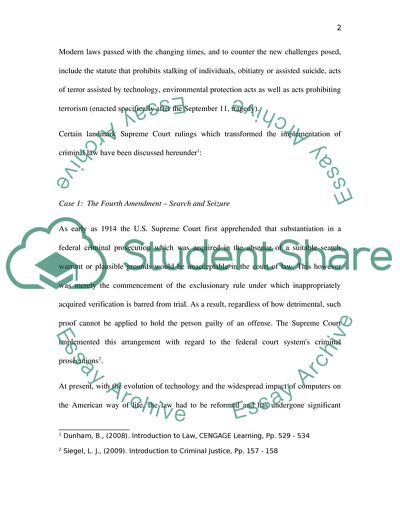Evolution of the US Criminal Justice Research Paper. Retrieved from https://studentshare.org/law/1726459-how-the-american-criminal-justice-system-has-evolved-from-its-inception
Evolution of the US Criminal Justice Research Paper. https://studentshare.org/law/1726459-how-the-american-criminal-justice-system-has-evolved-from-its-inception.


